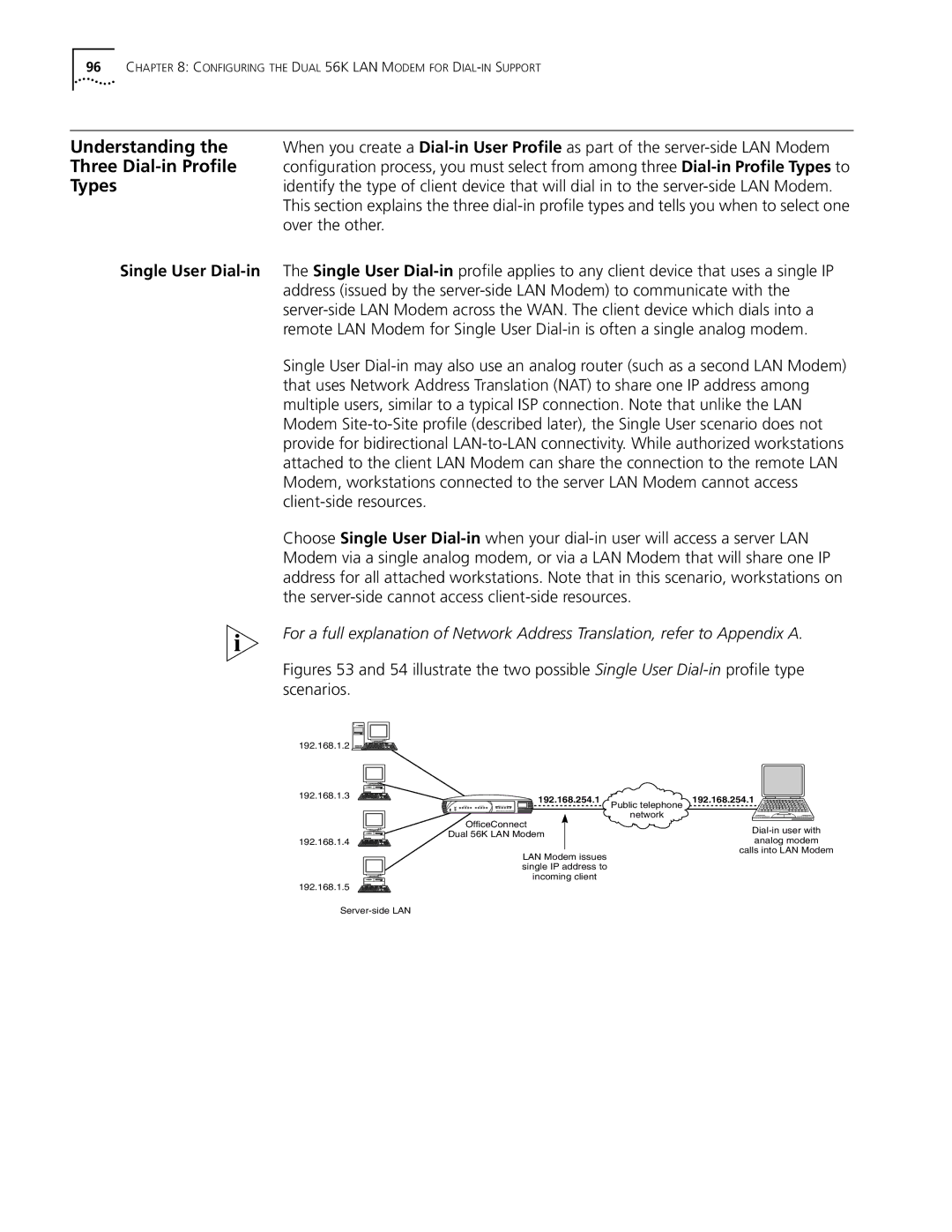96CHAPTER 8: CONFIGURING THE DUAL 56K LAN MODEM FOR DIAL-IN SUPPORT
Understanding the When you create a Dial-in User Profile as part of the server-side LAN Modem
Three Dial-in Profile configuration process, you must select from among three Dial-in Profile Types to
Typesidentify the type of client device that will dial in to the server-side LAN Modem. This section explains the three dial-in profile types and tells you when to select one over the other.
Single User Dial-inThe Single User Dial-inprofile applies to any client device that uses a single IP address (issued by the server-side LAN Modem) to communicate with the server-side LAN Modem across the WAN. The client device which dials into a remote LAN Modem for Single User Dial-in is often a single analog modem.
Single User Dial-in may also use an analog router (such as a second LAN Modem) that uses Network Address Translation (NAT) to share one IP address among multiple users, similar to a typical ISP connection. Note that unlike the LAN Modem Site-to-Site profile (described later), the Single User scenario does not provide for bidirectional LAN-to-LAN connectivity. While authorized workstations attached to the client LAN Modem can share the connection to the remote LAN Modem, workstations connected to the server LAN Modem cannot access client-side resources.
Choose Single User Dial-inwhen your dial-in user will access a server LAN Modem via a single analog modem, or via a LAN Modem that will share one IP address for all attached workstations. Note that in this scenario, workstations on the server-side cannot access client-side resources.
For a full explanation of Network Address Translation, refer to Appendix A.
Figures 53 and 54 illustrate the two possible Single User Dial-inprofile type scenarios.
192.168.1.2 | | | |
192.168.1.3 | 192.168.254.1 | Public telephone | 192.168.254.1 |
|
| | |
| OfficeConnect | network | |
| | Dial-in user with |
| Dual 56K LAN Modem | |
192.168.1.4 | | analog modem |
| |
| LAN Modem issues | | calls into LAN Modem |
| | |
| single IP address to | | |
| incoming client | | |
192.168.1.5 | | | |
Server-side LAN | | | |

